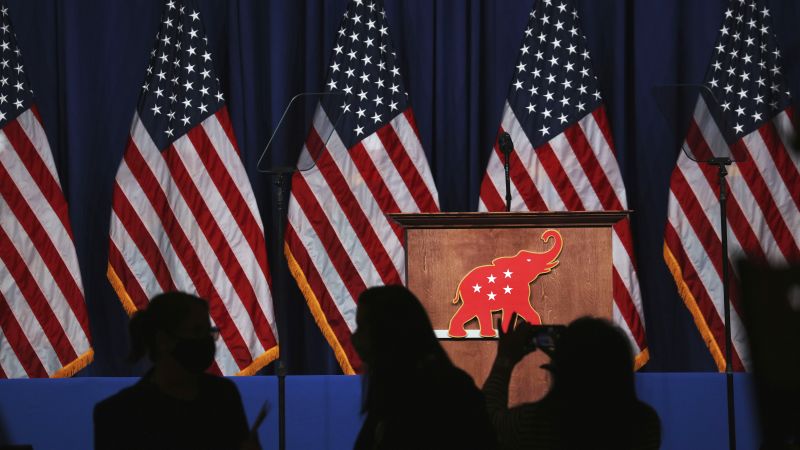The Republican National Committee’s chief counsel Charlie Spies has resigned from his position just two months after accepting it. His departure came after weeks of tension with RNC officials, with sources indicating that some Donald Trump loyalists were displeased with his previous work for other Republican figures like Jeb Bush and Mitt Romney. Spies’ hiring was seen as being at odds with the former president, leading to growing tensions within the organization.
RNC spokesperson Danielle Alvarez stated that Spies stepped down due to potential time commitment conflicts, indicating that he could not fulfill the role full-time while maintaining his obligations to his law firm practice. Spies himself confirmed that working full time at the RNC was not the right fit with his client commitments, but he remains focused on helping to get President Trump and Republicans elected in November. Despite his departure, Spies’ previous role was meant to initiate a battle on election integrity from an offensive perspective.
Spies was brought into the RNC in March following the election of new RNC Chairman Michael Whatley. His hire was part of an effort to take on election integrity issues proactively instead of defensively. Although Trump initially approved of Spies’ hiring, sources indicate that the former president became upset after his allies pointed out clips of Spies criticizing false claims that the 2020 election was stolen. This led to further tension within the organization and likely contributed to Spies’ ultimately decision to resign from his position.
The situation surrounding Spies’ resignation highlights the ongoing divisions within the Republican Party, particularly between those who support Trump and those who align more closely with more traditional Republican figures. Spies’ ties to Jeb Bush, Mitt Romney, and Ron DeSantis likely contributed to the growing discontent among Trump loyalists within the RNC. The conflict ultimately resulted in Spies stepping down as chief counsel, signaling potential challenges for the party as it seeks to unify ahead of the upcoming elections.
Spies’ departure may have implications for the RNC’s strategy and approach going forward, particularly in addressing election integrity issues. His efforts to take a proactive stance on this topic may now be in question with his resignation. Additionally, the manner in which Trump and his allies responded to Spies’ hiring and subsequent criticisms demonstrates the ongoing power dynamics within the Republican Party and how disagreements can impact leadership decisions. The fallout from this situation could influence the RNC’s direction leading up to the election and beyond.
In light of Spies’ resignation and the tensions that led to it, the RNC will likely face challenges in maintaining unity and focus as it works towards the goal of electing President Trump and Republicans in the upcoming election. The conflict surrounding Spies’ hiring and subsequent departure reflects broader divisions within the party and highlights the struggle to balance loyalty to Trump with the party’s broader goals and values. Moving forward, the RNC will need to navigate these tensions carefully to ensure a cohesive and effective approach in the months ahead.















